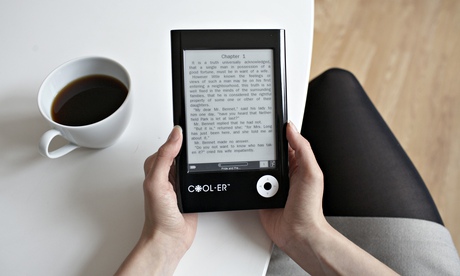Consumer ebook market set to almost triple over next four years while PwC predicts sales of printed editions will fall

Nigel Newton, chief executive of the Harry Potter publisher Bloomsbury, said the surge in ebooks had fuelled a 'golden age of reading'. Photograph: Justin Sutcliffe
The ebook will overtake the paperback and hardback as Britons' preferred format for reading their favourite novels by 2018, according to a report. The UK consumer ebook market – which excludes professional and educational books – is forecast to almost triple from £380m to £1bn over the next four years.
Over the same period, accounting group PwC predicts that sales of printed editions will fall by more than a third to £912m as the UK population's reading habits become dominated by tablets, with 50% of the country expected to own an iPad, Kindle or a similar device by 2018.
Nigel Newton, the chief executive of the Harry Potter publisher Bloomsbury, said the surge in ebooks had fuelled a "golden age of reading" in the UK. "Ebooks have been a force for good for authors and publishers," he said. "We can now reach a worldwide market 24 hours a day, seven days a week – everywhere there is mobile telephony and credit card usage. It has hugely opened up the market for us beyond that which could be reached only by bookshops. We live in golden age of reading, where more recent works are consumed than at any time in history through digital delivery."
More
Over the same period, accounting group PwC predicts that sales of printed editions will fall by more than a third to £912m as the UK population's reading habits become dominated by tablets, with 50% of the country expected to own an iPad, Kindle or a similar device by 2018.
Nigel Newton, the chief executive of the Harry Potter publisher Bloomsbury, said the surge in ebooks had fuelled a "golden age of reading" in the UK. "Ebooks have been a force for good for authors and publishers," he said. "We can now reach a worldwide market 24 hours a day, seven days a week – everywhere there is mobile telephony and credit card usage. It has hugely opened up the market for us beyond that which could be reached only by bookshops. We live in golden age of reading, where more recent works are consumed than at any time in history through digital delivery."
More
No comments:
Post a Comment